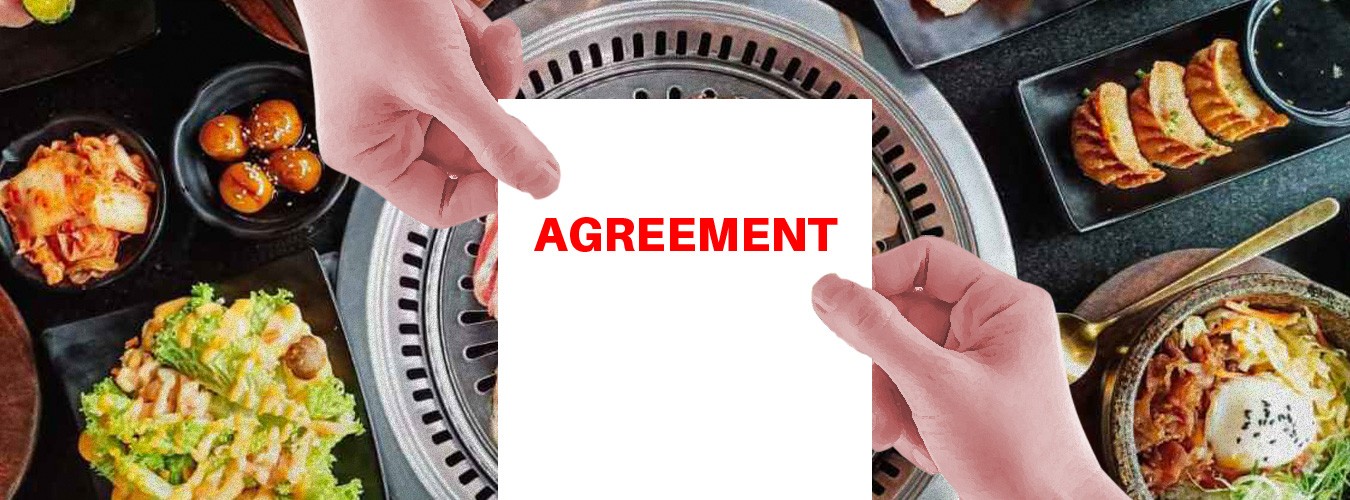Limited Samgyupsal – The Truth About Restaurant Franchises

LIMITED SAMGYUPSAL - The Truth about Restaurant Franchises
So after a hearty meal of grilled meat, luscious kimchi, and melted cheese, you decide to open your own unlimited samgyupsal restaurant. You talk with the franchise owner and both of you agree to all the terms and conditions. The next day, a franchise agreement is delivered to your door and you are about to put your signature on the dotted line.
STOP!
Your franchise agreement may be considered a technology transfer agreement under the Intellectual Property Code of the Philippines (“IPC”) and subject to certain restrictions.
A Technology Transfer Agreement is defined as a contract which involves the transfer of systemic knowledge for a product or process, as well as the transfer, assignment and licensing of all intellectual property rights. [Section 4.2 of Republic Act No. 8293, otherwise known as the IPC]
Most franchise agreements fall under this category because they involve the licensing of a trademark (restaurant name) and the transfer of systemic knowledge of a product or process (a special receipt/process/system for the food and service).
You should know that under Section 97 of the IPC, there are thirteen (13) prohibited clauses in a Franchising Agreement. Surprisingly, some of these clauses are considered as staples of franchising agreements and are taken for granted.
Let’s discuss some of the more common prohibited clauses:
-
Tie-in Purchases.- Those which impose upon the licensee the obligation to acquire from a specific source capital goods, intermediate products, raw materials, and other technologies, or of permanently employing personnel indicated by the licensor;
Most franchise agreements require the Franchisee to purchase ingredients only from a certain supplier to “control the quality”. For example, you may be required to only purchase pork products from a small farm in Batangas. That’s prohibited because it restrains competition and trade.
-
Price-Fixing - Those pursuant to which the licensor reserves the right to fix the sale or resale prices of the products manufactured on the basis of the license;
Another common provision in franchise agreements is the setting of a fixed price for all products. For example, you may be required to keep the price of your unlimited samgyupsal at 499 pesos despite the fact that you can sell it for a lower or higher amount. This is another prohibited clause that restrains competition and trade.
-
Restriction to Use the Technology after Term. Those which restrict the use of the technology supplied after the expiration of the technology transfer arrangement, except in cases of early termination of the technology transfer arrangement due to reason(s) attributable to the licensee;
Franchise agreement also usually contain a non-compete clause which restricts the franchisee from operating a similar restaurant within 2 or 3 years from the termination of the agreement. As an example, you may be prohibited from opening another Korean restaurant within 3 years from the termination of your franchise agreement. Again, this is a prohibited clause since it restricts the person from using the technology supplied even after the expiration of the technology transfer agreement.
-
Full Or Partial Purchase option - Those that establish a full or partial purchase option in favor of the licensor;
Another surprising provision which is common in restaurant franchise agreements is the option of the franchisor to purchase the entire business of the franchisee in case of termination of the agreement or even poor performance of the restaurant. For example, if you do not meet the proper quota in your samgyupsal restaurant, the franchise owner may exercise his right to buy the entire restaurant from you, including the furniture! This is another prohibited clause under the IPC.
A franchising agreement that contains a prohibited clause will be considered an unenforceable contract which will not be recognized in Court. However, you can apply for an exemption with the Intellectual Property Office who will review the agreement and grant an exemption to the prohibited clauses based on standard industry practice.
So before you pursue your samgyupsal dream, be sure to have your franchise agreement checked by your friendly neighborhood lawyer.
